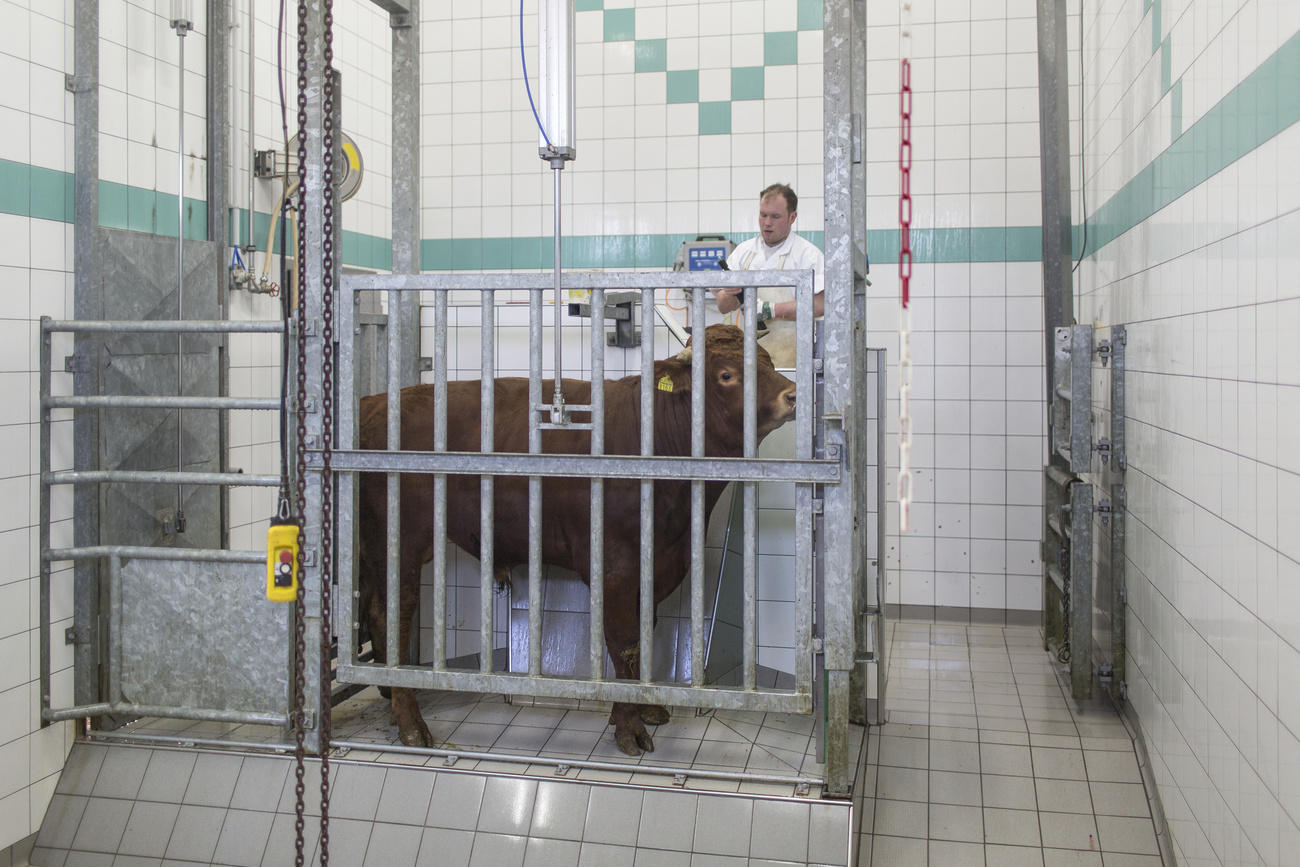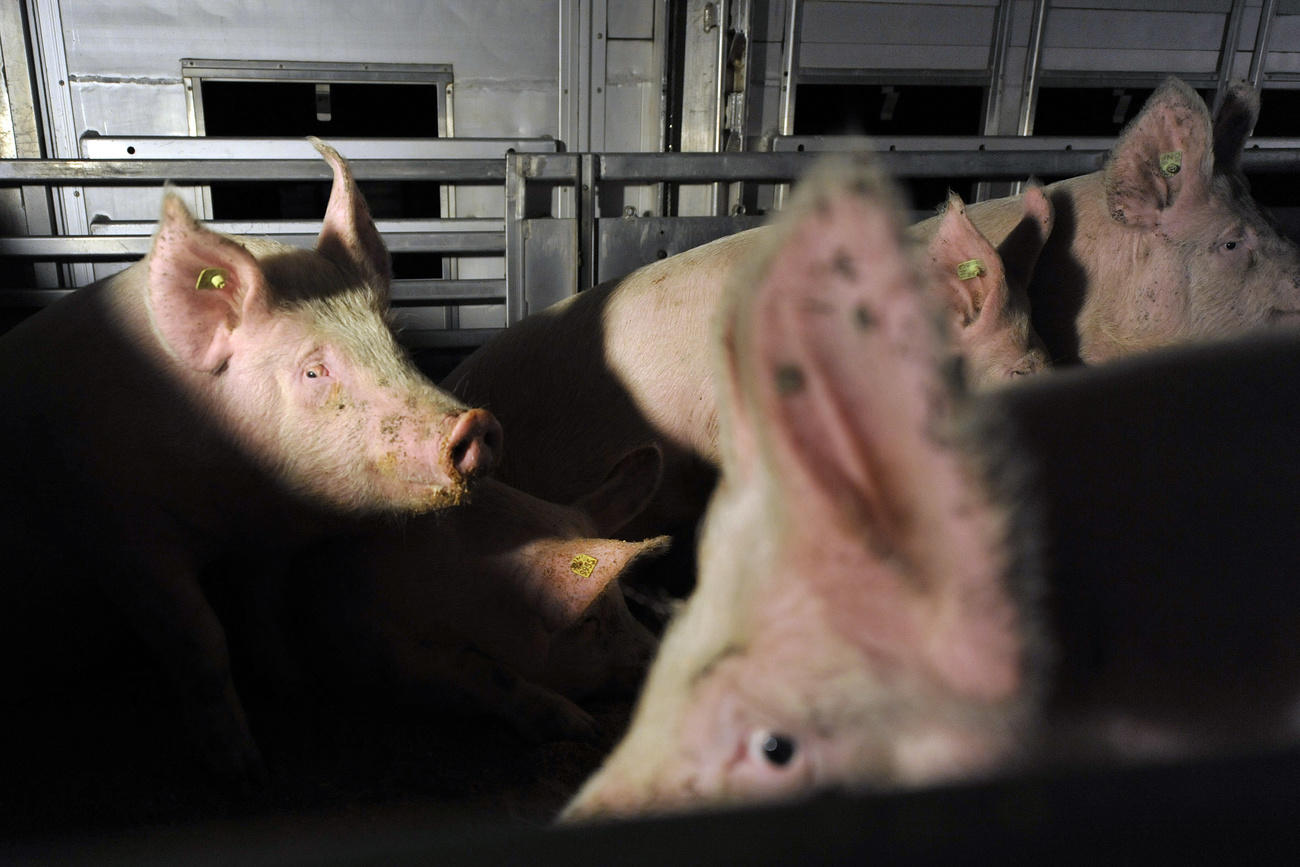
Parliament rejects video surveillance for slaughterhouses

The Swiss parliament has ruled out the use of video surveillance in slaughterhouses. A motion to monitor the stunning and killing of animals was clearly rejected by the Senate.
Wednesday’s decision came in response to accusations of animal rights organisations of abuses in Swiss abattoirs.
Social Democrat Senator Daniel Jositsch had presented a proposal based on an inspection of 67 slaughterhouses between January 2018 and March 2019. That review concluded that the control of stunning and bleeding was either not carried out or incorrectly done in many farms, especially small ones.
Slaughterhouses are a sensitive area of animal protection, the lawmaker noted. On the one hand, society tends not to want to know what is going on there and on the other, it consumes meat in large quantities. Official veterinarians fail to detect serious breaches in the protection of animals, and they cannot take the appropriate measures to avoid them. Video recordings would be a reliable and objective source of information for them, Jositsch argued.
Critics of the motion raised concerns over the rights of employees and data privacy. They were not satisfied with reassurances that surveillance would be done in limited areas, data access restricted to the authorities or official veterinarians, and recordings destroyed after a specific period.
Interior Minister Alain Berset maintains that the widespread implementation of video surveillance in slaughterhouses would be disproportionate and primarily of symbolic value. He said is up to the cantons to take greater responsibility in training slaughterhouse staff, optimizing processes and improving self-evaluation.
The Federal Office for Veterinary Affairs urged cantons to introduce immediate measures to improve the protection of animals during slaughter. The ordinance on the protection of animals during slaughter is also being revised and improvements to the various stunning methods are planned.
Small abattoirs came under scrutiny earlier this year after the Federal Food Safety and Veterinary Office concluded that stunning and bleeding of animals – done in preparation for a painless slaughter – was also not always adequate.
Switzerland protects animal dignity at the constitutional level and is among the leading countries in the World Animal Protection IndexExternal link.

More
Animal welfare rules not fully respected in some Swiss abattoirs

In compliance with the JTI standards
More: SWI swissinfo.ch certified by the Journalism Trust Initiative






























You can find an overview of ongoing debates with our journalists here . Please join us!
If you want to start a conversation about a topic raised in this article or want to report factual errors, email us at english@swissinfo.ch.